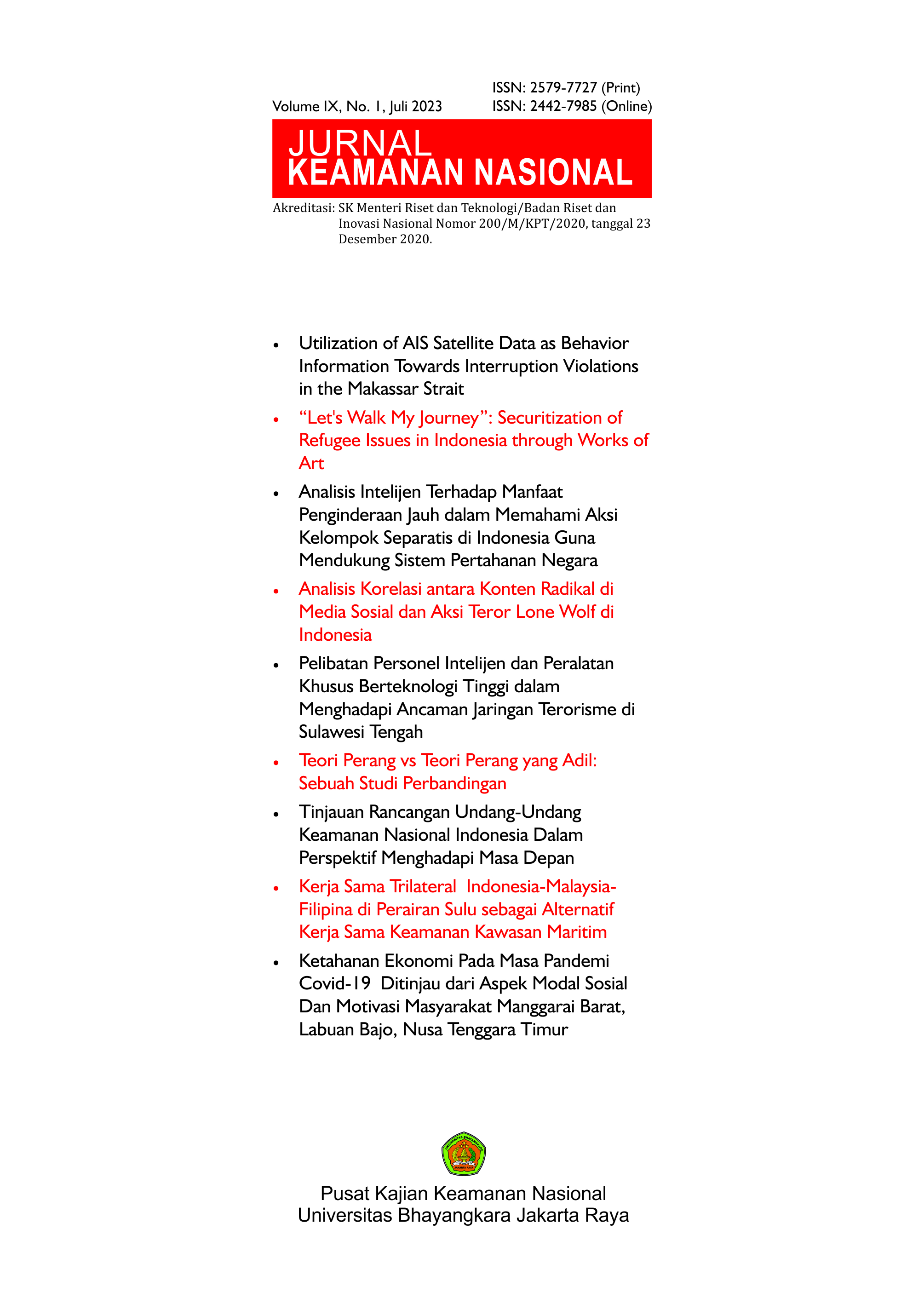Kerja Sama Trilateral Indonesia-Malaysia Filipina di Perairan Sulu sebagai Alternatif Kerja Sama Keamanan Kawasan Maritim
Keywords:
trilateral cooperation, cooperative security, Sulu Waters, maritime area security, terrorism, smuggling, transnational crimesAbstract
Trilateral cooperation between Indonesia, Malaysia, and the Philippines in the Sulu Sea is the latest security architecture in Southeast Asia. This cooperation leads to increasingly intensive relations between the three countries in the field of maritime security. Relations became close because of the common security threats experienced by the three countries. These threats vary from threats of terrorism, smuggling, piracy and other transnational crimes. The three countries then formed a joint system to be able to deal with this threat, this situation is hereinafter referred to as cooperative security. This study then has the aim of identifying the cooperative security framework implemented by Indonesia, Malaysia, and the Philippines for maritime security in Sulu Waters. Based on the idea of cooperative security put forward by Richard Cohen there are four rings that are important elements, namely (1 ) individual security, (2) maintaining peace, (3) mutual protection, and (4) actively promoting stability. The four rings are then used to explain the pattern of relations in the context of cooperative security involving Indonesia, Malaysia, and the Philippines. This study uses a qualitative method, with a descriptive approach to explain the overall identification of cooperative security that occurs.
Downloads

Downloads
Published
Issue
Section
License
Please read and understand the copyright terms for submissions to this journal.
Copyright Notice
The Jurnal Keamanan Nasional is under the Creative Commons Attribution 4.0 International (CC-BY 4.0) License, according to which:
1) Authors retain copyright and grant the journal the right to first publication, with the work simultaneously licensed under the Creative Commons Attribution (CC-BY 4.0) that allows the sharing of articles published with the acknowledgement of authorship and the initial publication in this journal.
2) The authors are authorized to make additional contracts separately for distribution of the version of the work published in this journal (for example, publication in an institutional repository or as a chapter of the book), as long as there is recognition of authorship and initial publication in this journal.
3) Authors are authorized and encouraged to publish and distribute their work online (for example, in institutional repositories or on their personal pages) at any time before or during the editorial process, as it increases the impact and reference of the published work.












